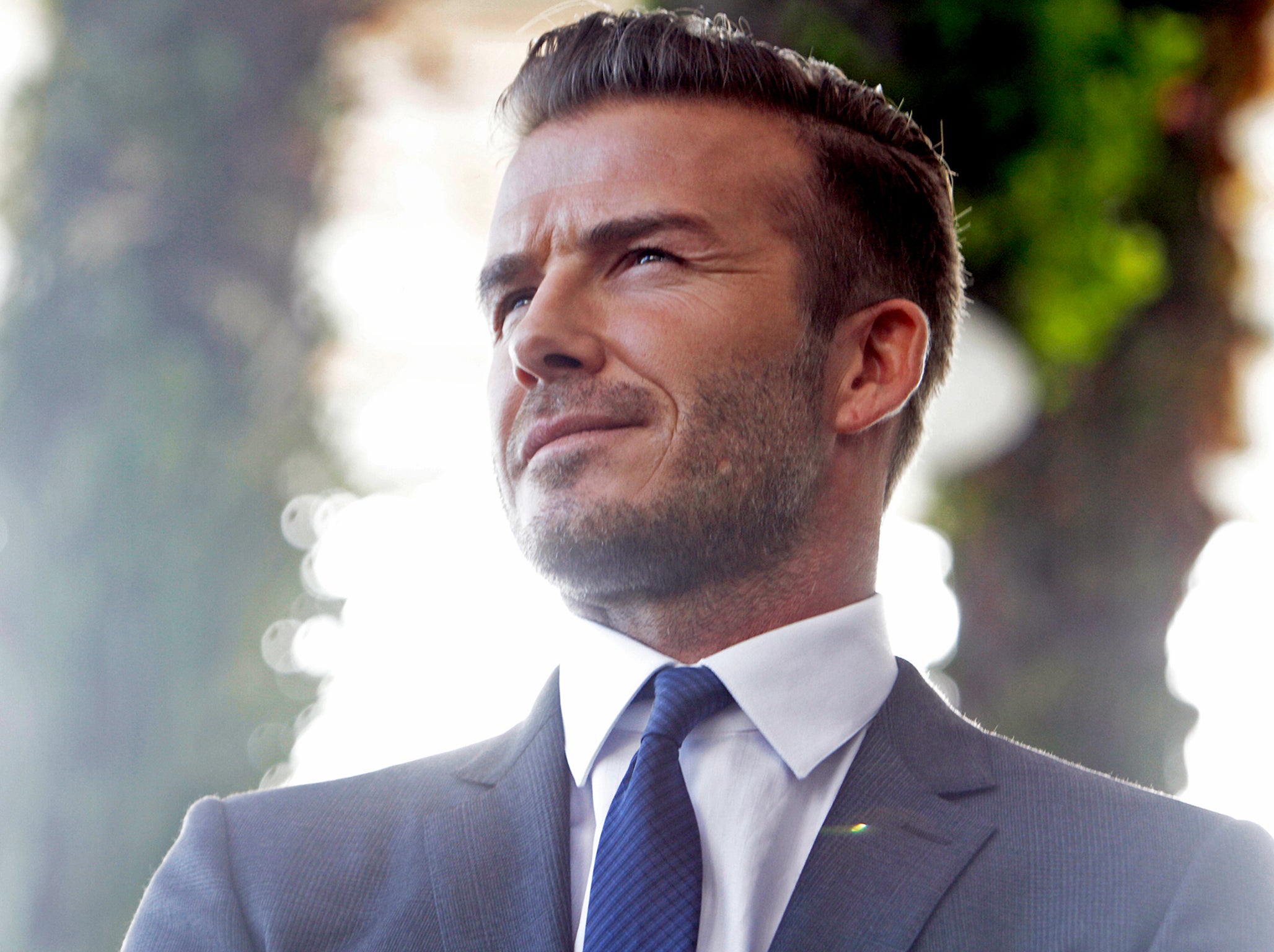Why David Beckham is investing in a dying duck in Miami - his MLS dream could yet turn out to be a nightmare
Beckham has bought into a competition that, unlike many of Europe’s leading leagues, is heavily in the red rather than the black

Your support helps us to tell the story
From reproductive rights to climate change to Big Tech, The Independent is on the ground when the story is developing. Whether it's investigating the financials of Elon Musk's pro-Trump PAC or producing our latest documentary, 'The A Word', which shines a light on the American women fighting for reproductive rights, we know how important it is to parse out the facts from the messaging.
At such a critical moment in US history, we need reporters on the ground. Your donation allows us to keep sending journalists to speak to both sides of the story.
The Independent is trusted by Americans across the entire political spectrum. And unlike many other quality news outlets, we choose not to lock Americans out of our reporting and analysis with paywalls. We believe quality journalism should be available to everyone, paid for by those who can afford it.
Your support makes all the difference.“This is something that has been a dream for many, many years,” said David Beckham at the announcement of the MLS’s newest franchise in Miami.
There will doubtless be plenty who will buy into it, not least the city’s Southern Legion supporters group, who haven’t had a team to cheer on since the Miami Fusion went belly-up in 2001.
But aside from Beckham’s colourful and brash PR triumph this week, the fact remains that he has bought into a competition that, unlike many of Europe’s leading leagues, is heavily in the red rather than the black.
It is also fighting a losing battle against America’s most well-established sports, who hoover up broadcast riches and leave soccer little but the remaining scraps.
“Beckham is a personality and he’s hugely popular here,” says Jordan Kobritz, a professor in the Sport Management Department at SUNY Cortland. “Not only was he an outstanding soccer player but he has been an entertainer and a man about town – and he has always been very well received.
“The fact is, though, that he’s buying into a league that is facing huge problems. The MLS is very fragile. If the folks running the MLS, Don Garber and his associates, have an end game then they haven’t made it public. This is an unsustainable business model and this isn’t just about Beckham because this is a single entity league.
“The franchises are not individually owned. Beckham owns shares in MLS, just like everyone else who owns a franchise. It’s like having stock in General Motors, Nestle or any other corporation.
“They’re all in the same boat together. Even though Beckham’s operation in Miami may be successful – and I’m emphasising the ‘may’ in that phrase – that isn’t going to help him if the league overall doesn’t start becoming profitable.”

That hasn’t happened since the inception of the MLS 25 years ago. Last season, the league set a new attendance record with over eight million people coming through the gates at the 22 different franchises.
Atlanta United and the Seattle Sounders led the way, with both clubs averaging attendances of well over 40,000. The former finished the season with a huge crowd of 71,874 for their final match against Toronto.
Getting bums on seats is no longer an issue. The problem for the MLS is generating the kind of commercial revenues enjoyed by clubs across the Pond.
“In short, getting more people to come to the games isn’t the answer,” he says.

“According to the MLS, attendances have risen by 43% in the last 12 years. The problem with big time sports, at least in America, is that, unless you have significant broadcast revenues, you’re not going to make it financially.
“Roughly 80% of MLS revenue is generated from ticket sales and that’s just not sustainable. They could sell out every game at every facility and still not be financially sound.
“Compare that to NFL. Teams in the NFL could play in front of empty stadiums in Conference games, Play-off games and the Super Bowl and they would still be profitable.”

The same could be said of the Premier League here, with the money generated by ticket sales and supporters now dwarfed by the riches enjoyed by clubs who continue to bask in the warm glow of a domestic broadcast deal worth in excess of £5bn over three seasons. Throw in international rights and the 20 Premier League clubs could still afford to spend on exorbitant transfer fees and wages until the cows come home in Beckham’s home country.
As soon as the former England star had raised a glass to his new venture, the odds on the likes of Cristiano Ronaldo and Lionel Messi arriving in the MLS in the not too distant future began tumbling.
But even their arrival would leave soccer battling with America’s more established sports for a greater share of the TV revenue it needs to gain a genuine and lasting foothold in the USA’s sporting calendar.
“As popular as soccer has been in youth sports, or High Schools or Colleges, that has not translated to the professional realm as quickly as team owners had hoped,” says Kobritz.
“Again, part of it is that the other leagues had a huge head start. With all of the media money that is being thrown at the NFL, MLB, NBA and even the NHL, soccer is really at the tale-end of that. They’re just getting the dribs and drabs of what’s left from the networks and the TV stations.”
The launch in Miami has got Beckham to first base. The home run might be altogether more hazardous.
Join our commenting forum
Join thought-provoking conversations, follow other Independent readers and see their replies
Comments